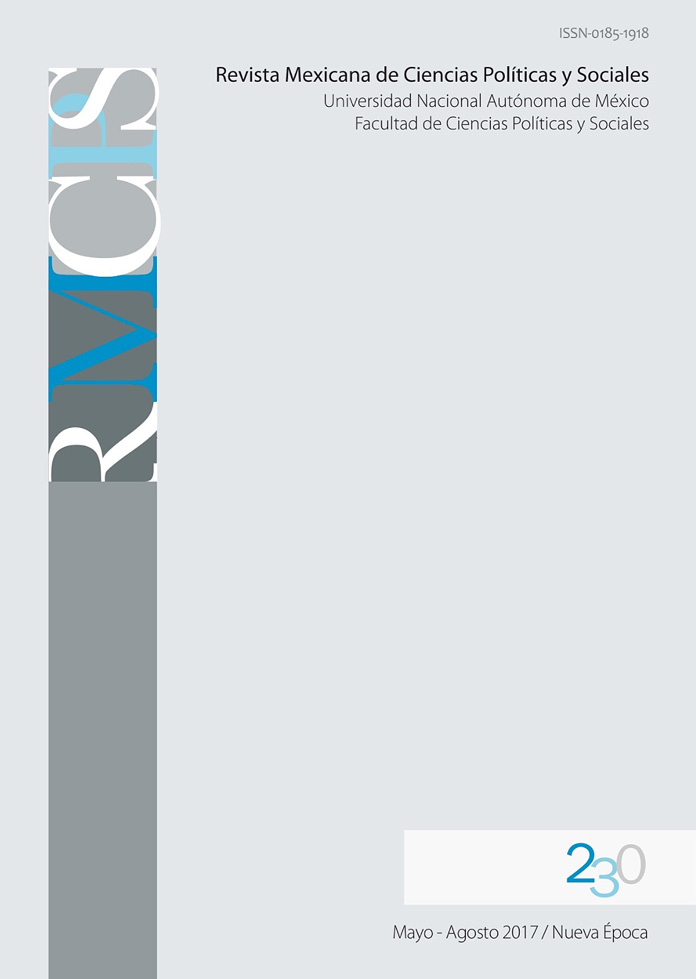Living and Thinking from Foreignness
Main Article Content
Abstract
The experience of foreignness was a constituent part of Zygmunt Bauman’s life, deeply inscribed in the crossroads, disasters, and shocks of the 20th century. Self-defined as a “stranger from head to toe and to the marrow,” his personal experience as a foreigner -defined less by the passport than by the precarious status and lack of belonging of every stranger- was interwoven with an exile intellectual view on the social world, in which uncertainty was combined with freedom of thought. Thus, from a position that assumes foreignness as a “being on the edge,” “out from,” this condition became for Bauman in a privileged epistemological viewpoint.
Downloads
Article Details
References
Bauman, Zygmunt (1988a) “Exit visas and entry tickets: Paradoxes of Jewish assimilation” Telos (77).
Bauman, Zygmunt (1988b) “Strangers: The social construction of universality and particularity” Telos (78).
Bauman, Zygmunt (1992) Intimations of Postmodrnity. Londres: Routledge.
Bauman, Zygmunt (1994) Pensando sociológicamente. Buenos. Aires: Nueva Visión.
Bauman, Zygmunt (1996) “From pilgrim to tourist –or a short story of identity”, en Stuart, Hall y Paul du Gay (eds.) Questions of Cultural Identity. Londres: Sage Publications.
Bauman, Zygmunt (1999) Trabajo, consumismo y nuevos pobres. Barcelona: Gedisa.
Bauman, Zygmunt (2002) Modernidad líquida. Buenos Aires: Fondo de Cultura Económica.
Bauman, Zygmunt (2005a) Identidad. Buenos Aires: Losada.
Bauman, Zygmunt (2005b) Modernidad y ambivalencia. Barcelona: Anthropos.
Bauman, Zygmunt (2010) La globalización. Consecuencias humanas. México: Fondo de Cultura Económica.
Bauman, Zygmunt (2012) Esto no es un diario. Madrid: Espasa Libros.
Bauman, Zygmunt (2016) Extraños llamando a la puerta. España: Paidós.
Bunting Madeleine (2003) “Passion and pessimism” The Guardian, 5 de abril. Disponible en: https://www.theguardian.com/books/2003/apr/05/society.
Kilminster Richard e Ian Varcoe (1992) “Sociology, postmodernism and exile: An interview with Zygmunt Bauman”, en Bauman, Zygmunt, Intimations of Postmodernity. Londres: Routledge.
Kristeva, Julia (1991) Extranjeros para nosotros mismos. Barcelona: Plaza y Janés.
Steiner, George (1971) Extraterritorial. Ensayos sobre literatura y la revolución lingüística. Barcelona: Barral.
Wiesel, Elie (1991) “¿Quién le teme al lobo feroz?” Los emigrantes. Suplemento mundial de La Jornada, 23 de junio, p. 19.

La Revista Mexicana de Ciencias Políticas y Sociales publicada por la Universidad Nacional Autónoma de México se distribuye bajo una Licencia Creative Commons Atribución-NoComercial-SinDerivar 4.0 Internacional.
Basada en una obra en http://www.revistas.unam.mx/index.php/rmcpys/
La RMCPyS autoriza a sus colaboradores que suban una copia de sus trabajos publicados en sus webs personales o en cualquier repositorio de acceso abierto, siempre y cuando se mencione específicamente a la Revista Mexicana de Ciencias Políticas y Sociales como fuente original de procedencia, citando el año y número del ejemplar respectivo y añadiendo el enlace a la página web donde este órgano editorial puede ser consultado in toto, de manera abierta y gratuita en: <www.revistas.unam.mx/index.php/rmcpys>.
Las y los lectores tienen libertad para:
Compartir, copiar y redistribuir el material en cualquier medio o formato.
El licenciante no puede revocar estas libertades en tanto usted siga los términos de la licencia.
De acuerdo con los siguientes términos:
- Atribución: la/el lector/a debe reconocer el crédito de una obra de manera adecuada, proporcionar un enlace a la licencia, e indicar si se han realizado cambios. Puede hacerlo en cualquier forma razonable, pero no de forma tal que sugiera que tiene el apoyo del licenciante o lo recibe por el uso que hace.
- No comercial: la/el lector/a no puede hacer uso del material con fines comerciales.
- Si se mezcla, transforma o se desarrolla a partir de la obra licenciada, no se permite la distribución del material modificado.
Cargos por gestión de artículos
La Revista Mexicana de Ciencias Políticas y Sociales NO cobra tarifas por recibir, procesar o publicar los artículos (Article Processing Charge [APC]) enviados por los autores.

